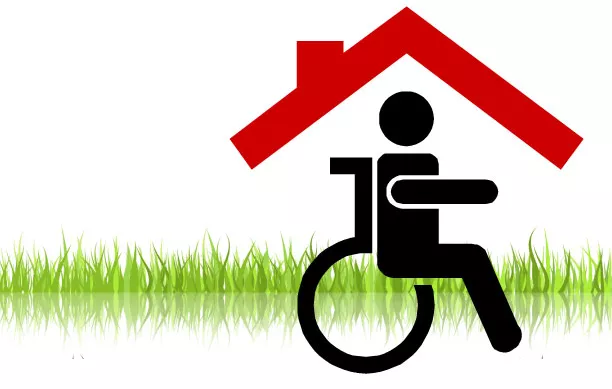
Housing project for adults with mobility impairment

Context
Many young adults with motor disabilities must stay with their parents until those no longer have the strength to help them or must move in an establishment, such as a CHSLD or an intermediate resource, because they need physical support for their daily life activities.
This situation creates constant stress on the parents who have to juggle their role as a permanent caregiver with their career, family life and eventually with illness and aging. For these disabled young adults, dependant on their parents, this situation leads to a loss of self-esteem, guilt and constant anxiety.
The advancement of science and medicine has pushed the boundaries of what is possible. People who 40 or 50 years ago would not have survived infancy can now have roughly normal life expectancies, unfortunately too often accompanied by significant motor impairments. We must empower them to integrate into and contribute to society.
Since 2004, the MSSS’ orientations recognizes the importance of «supporting the creation of non-institutional residential environments, integrated into the community, that meet the needs and the choice of physically-disabled people. »
According to l’Institut de la statistique du Québec (ISQ, 2016) [1]: In Quebec, almost half of people fifteen or older, who are living with a disability and need support, do not receive it or do not get enough of it. This lack of support particularly affects those who are between the ages of 15 and 64 and who live with physical disabilities.
According the Office des personnes handicapées du Québec (2017) [2], among the people who receive home care services:
- 72% receive help through volunteer;
- 26% through an agency or a person that they or their family pay;
- only 14% receive it through someone paid, fully or partially, by the CLSC;
- in 2013-2014, almost one user out of ten living in a CHSLD was less than 65 years old.
[1] Institut de la statistique du Québec, Zoom Santé, mai 2016
[2] Rapport d’évaluation de l’efficacité de la politique gouvernementale À part entière : pour un véritable exercice du droit à l’égalité, 2017